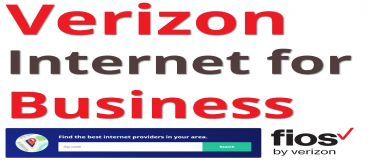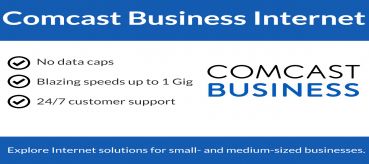Signs of Red Flags When Choosing an Internet Provider for Business

If you have got a choice of internet providers in your area or not, it's very important to find out how to open your internet service provider (ISP) is about the less-than-ideal parts of their service. You should consider transparency when deciding which service will be a better long-term fit for you.
Many ISPs will try to avoid answering your inquiries and offer you their services by sticking to a script. ISPs are notoriously evasive when it comes to pricing increases, speed options, data restrictions, advertised vs. actual download and upload speeds, and hidden fees, yet this is precisely the information you need to know. From chatting with sales representatives from several internet providers, here's what we discovered about getting the answers you need and identifying your ISP's red lights.
Recommended
frontier business internet
Actual download and upload speeds vs. advertised speeds
When choosing an internet provider, the final red flag to watch for is if your ISP isn't forthright about the download and upload speeds you may expect. It's crucial to understand how much speeds can deviate from the speed plan. If you see that your speeds are lower than what they promised, you may be able to negotiate a better bargain or have your speed plan raised for free. Make sure to inquire about both download and upload speeds to determine if your service is being throttled or if something is wrong with it.
Take note of how some ISPs respond to your questions concerning advertised vs. actual internet speeds as compared to others. This is especially crucial to inquire about if your internet provider is DSL, as DSL speeds are frequently influenced by your neighbor's internet usage. The more transparent your ISP is about internet speed fluctuations and when you may expect faster or slower speeds, the better.
Internet Comparison
CenturyLink vs Mediacom
Suddenlink vs AT&T
Fios vs Spectrum
Data caps and speed throttling
Because they don't impose an overage fee, some ISPs will pretend to offer limitless data. Unlimited data, on the other hand, does not always imply what you believe it does. In many circumstances, ISPs will impose a "soft" data limitation, which means that if you go over the limit, you won't be charged an overage fee, but your speeds will be slowed (known as throttling) for the remainder of the month.
Make sure you understand the data limit and how much your speeds will be slowed. You'll need to question your potential ISP under what situations and by how much they reduce speeds. Many ISPs will try to sell you on the idea that they don't levy overage fees, so stick to your guns and ask about speed throttling. Finding out how often current customers go over their data allowance and whether speed throttling varies by area from your sales agent will also be beneficial. They may not always have this information, but see what you can learn from them.
Take notice of which internet provider is more forthright regarding data restrictions and speed throttling if you have a choice of internet providers for your home. You don't want to go with a service provider who makes you feel like you have to beg for fundamental information.
Increase in Pricing
Many ISPs are faced with the difficult task of determining how much their pricing will rise when they will do so, and how frequently they will do so. You should expect a price hike at some point unless your speed plan is clearly designated as Price For Life. Some suppliers may tell you about the initial price hike upfront. The majority of pricing hikes occur after the first 12 months and are typically between $10 and $20 per month. Other providers, on the other hand, will be cautious to respond to concerns about price increases since they do not have a set increase; instead, their increases are determined by the market and what they believe they can get away with.
To receive the answers you need from companies like them, you'll have to be exceedingly persistent. Instead of asking when your first price rise will be and how much it will be, ask when the first feasible price increase will be and what the maximum price increase will be. Even if the price rise isn't established, explain that you're trying to budget and need to know what you might need to prepare for. This will require them to state more than "no price increases are planned."
Make sure you understand how often you might expect a price increase. The majority of providers make it appear as if there will be only one. This is rarely the case, therefore inquire as to whether there is a cap on how much they will charge for internet or if your rates will continue to rise endlessly. Make it clear that you expect to be notified in advance of any price increases. Take it as a huge red flag if a provider refuses to provide any commitments about maximum price increases or price increase alerts.
Hidden Charges
Among the most common complaints customers have about their ISP is that their first internet bill was unexpectedly high. Multiple fees, some monthly costs, and other one-time fees are sometimes charged by ISPs, making the first bill particularly costly. If you're buying your own equipment, make sure your ISP is aware that the equipment charge will be deducted from your payment. Despite the fact that this should be done automatically, some ISPs nevertheless try to slip in an extra monthly price. When you receive your first internet bill, you'll want to double-check to be sure nothing extra has been added.
If they have, you should bring it up right away and threaten to move providers if you have the chance.
Many clients expect that when they check out, their ISP will inform them of the exact price they would see on their first statement. In actuality, when selling you a service, ISPs frequently simply disclose the listed price and do not include any additional expenses. As a result, you'll need to ask explicitly what else you may expect to pay.
One should also inquire whether there are any alternatives to avoid certain fees. Many providers may waive activation or installation fees if you order your service online rather than over the phone. So you aren't surprised the first month, have your ISP walk you through all of the fees you may expect on your account.
Speed Options
Many people who have Wi-Fi at home are unaware of their speed plan. Their ISP failed to inform them that there were other speed tiers to chose from, so they accepted whatever their ISP offered. Although there may be only a one-speed plan accessible in a given area at times, there are usually several to pick from. Make sure you understand which speed options your provider offers, and inquire about such plans if your provider does not initially state that they are available. You don't want to pick a speed plan that is faster than you require.
Recommended
Comcast internet plans
Xfinity business internet
Conclusion
For many people, purchasing an internet causes a lot of anxiety because it's necessary to have yet difficult to fully comprehend. One reason for this is that many ISPs avoid disclosing how much their service actually costs or discussing the drawbacks of their service.
As a result, when an ISP is offering you a product, you should be on the watch for red signals. This will not only assist you in selecting the best internet provider in your area, but it will also ensure that you receive the best deal from that service. Make sure you're prepared and willing to be persistent in order to acquire answers to all of your inquiries.
Remember that the biggest red flag for an ISP is if they consistently avoid answering your queries or provide you with ambiguous information about their service, giving them room to exploit you in the future.
One of the causes for this poor communication is that most communities in the United States only have one internet provider, which means ISPs don't have to compete for customers. It is consequently up to you to speak out for yourself and obtain the information you require regarding your service. If you have a choice between two internet providers, it's probably in your best interest to choose the one you trust the most.
Related Posts
Wed, Apr 22, 2020 11:34 PM
Find Verizon Internet for Business Near You!
Verizon provides Internet for business in more than 40 states in the US, speeds are limited to 15 Mbps, and many businesses will need more juice. If you're in the Northeast, you can enjoy high-speed Internet via Verizon's FiOS. This is ideal for businesses that need high speeds, such as restaurants, hotels, medical facilities, hospitals, schools, and other businesses.
Thu, Apr 23, 2020 12:00 AM
5 Best Small Business Internet Service Providers (2021)
The following Internet Service Providers are not listed in any particular order, but we have ranked these five companies as worthwhile due to some key factors such as speed, reliability, cost, and overall customer satisfaction.
Mon, Apr 20, 2020 11:13 PM
Business Internet Guides for Entrepreneurs
Small businesses need to grow, but how big should your business become before you buy it online? Whether you started out as a sideshow or a brick-and-mortar business, successful small businesses are finding it increasingly difficult to decide when to shell out money for an Internet business.
Thu, Apr 23, 2020 11:52 PM
Why Business Internet is More Expensive Than Residential Internet
This question is asked so often today that it seems worth explaining, but here are 5 reasons why business Internet is more expensive than Residential Internet packages.
Fri, Apr 24, 2020 5:17 AM
Comcast Internet For Business: Internet, Phone, TV, and Other Solutions for your Business.
Comcast Business is US largest cable provider for small and medium-sized businesses and has become a force in the market, recognized by leading industry over the past two years as one of the fastest-growing providers of high-speed broadband to business customers




